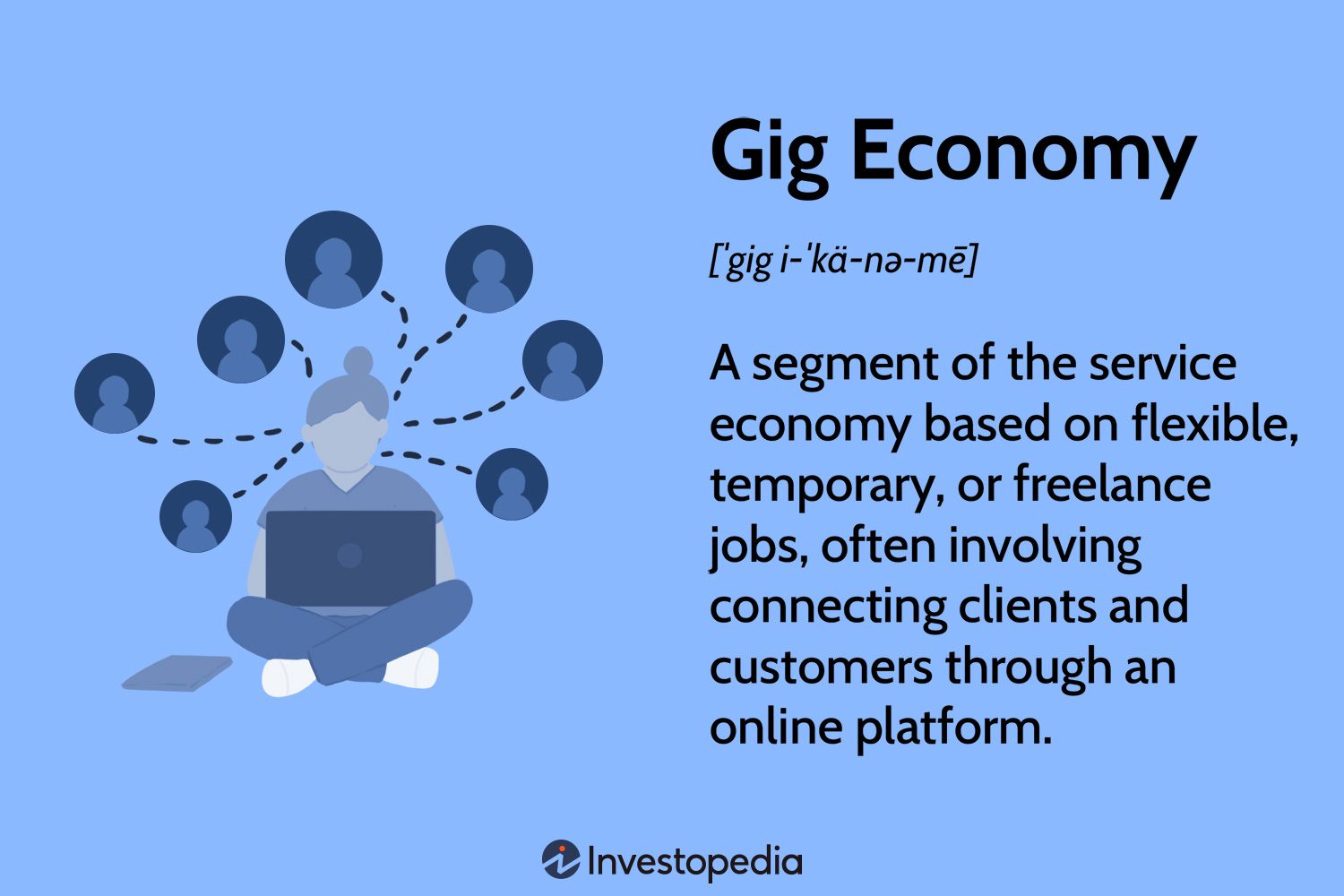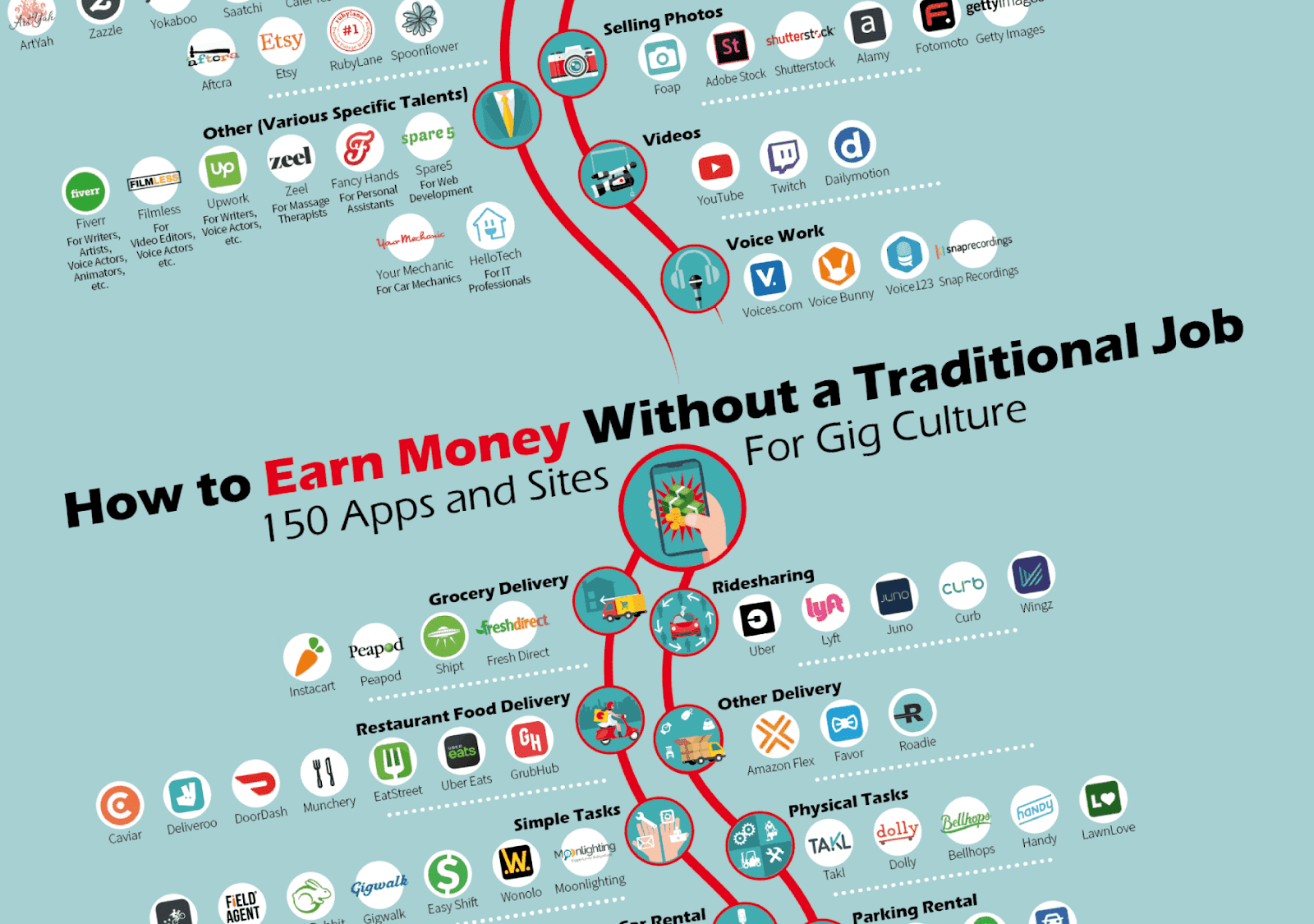By Erika Koutroumpa,
It is evident that the way we go about our everyday activities has been revolutionized by the gig economy, from the way we order food to the way that we commute. This relatively recent term typically involves individuals engaging in short-term work by providing services for an organization, such as a company. Even though, this started in the late 90s, the development in technology and the rise of mobile phone apps are what has led to the exponential growth of this type of conducting business. Most big companies can be located in one of four categories of work platforms: crowd work platforms, transportation platforms, delivery/home task platforms, and online freelance platforms.
Types of gig worker
So far, there is not just one classification of a gig worker. Depending on the underlying legislation, as well as the contract between them and the company, a person engaged in such types of jobs can be a freelancer, a contractor, or a part-time hire. So what is the difference between these 3 roles? A freelancer makes money on a per-job basis without working for a firm. They have the liberty to work on different jobs for different clients at the same time, and they fall under the self-employed tax laws. A contractor is a professional who provides skills or services to companies for a set period and can be either self-employed or can work at a company. The latter work with clients sourced by the company, and the company pays the contractor and their taxes. Unlike an employee, a contractor can choose to accept or decline work. On the other hand, a part-time hire works fewer hours than what the company considers full-time employment, and no set number of hours is legally required.

Positives for companies
No need for rent, since the apps mainly employ offsite workers who mostly use their own equipment. Furthermore, depending on the definition used in the contracts, companies with gig workers as independent contractors do not have to pay expenses such as health benefits, retirement plans, and sick leaves.
Additionally, there is no need to pay for the education of their employees.
Positive for customers
Gig economy apps present a great variety of options, usually in already saturated markets. So what else contributes to the appeal of this system? This has to do mostly with the online aspect and the lack of regulation in the sector. Through the click of a button, a client can encounter one of the gig workers from anywhere and assign them a task. The lack of bureaucracy means it is easier to hire and online platforms ensure rapid delivery of the requested product. Not only that, but the gig economy often offers not only a quicker alternative but a competitive price point as well. Furthermore, since the employability of workers heavily depends on client satisfaction and reviews, the service through the apps is of higher quality than from a company where the workers get a fixed salary every month, regardless of performance.
Positives for workers
Why would someone choose to work in the gig economy? By using a gig platform, a person can work from everywhere in the world at any time with just the help of an electronic device connected to the internet. The strongest suit of this type of employment is its flexibility, both in terms of place and time and this is perhaps one of the main reasons that it took off during the COVID-19 pandemic. Additionally, since a wide array of fields is covered by the services of online work, a more qualified gig worker can pick and choose which tasks they wish to complete. This means that the worker gets a lot more creative freedom in completing projects more suitable for their fields of interest, unlike in a traditional role where all work is assigned randomly by a company. Lastly, one of the positives is also that a person is often able to provide their services on multiple platforms of the same type and not being dependent on a single employer is a large part of the appeal for many working in the gig economy.
Cons for the workers
As has been mentioned before, this is a heavily unregulated market, which can be a double-edged sword. In the case of a gig worker, this has more risks entailed, especially if this is not just a side hustle but a main stream of income. With their classification being uncertain, your average gig worker might not be able to have access to resources that are considered a given for that with more stable employment, such as benefits, sick days, and health insurance. What is more, multiple cases of burnout and overworking have been observed in gig workers, as they try to maximize the time in a day and complete as many gigs as possible.

Current legislation
There are issues when it comes to the definition of a gig worker, and the gig economy remains a heavily unregulated industry. In the UK, the Uber BV v Aslan [2021] UKSC 5 case is the defining legislation for gig workers. While the status of a gig worker is mostly dependent on their contract with the company, in February 2021, a group of drivers managed to successfully challenge the gig economy’s giant and gain worker status. Despite, the contract defining them as self-employed workers, the Supreme Court found that the nature of the relationship between the drivers and the company deemed them as workers, not independent. Hence, they had the right to minimum statutory rights, such as being paid minimum wage. If legally classified as a worker and started working after 6 April 2020, a person has the right to receive a written statement of terms, provided on or before the first day of work. In Canada, laws have been amended to avoid misclassification, and the burden of proof is placed on the employer to prove that the applicant of the complaint is not an employee. Other countries are investigating the creation of new legislation protecting gig workers, but nothing concrete has come out yet.
Conclusion
To conclude, the gig economy is a rapidly evolving market that is here to stay. Though it still has great potential, the legal background is still lacking, leaving the workers involved without a precise definition, and often not the same rights as regular employees. The priority should be that the safety of gig workers is ensured, while also maintaining the balance that is needed for this sector to develop.
References
- Rights for gig economy workers. london.gov.uk. Available here
- Young people and the gig economy Luis Pinedo Caro, Niall O’Higgins and Janine Berg. ilo.org. Available here
- Good Jobs, Bad Jobs in the Gig Economy Arne L. Kalleberg and Michael Dunn PERSPECTIVES ON WORK / 2016. michael-dunn.org. Available here
- The value of online gig economy platforms, Catherine Thomas Christopher T. Stanton / 15 Jan 2022. cepr.org. Available here
- Doing business in the gig economy: A global guide for employers, Norton Rose Fulbright, December 2020. nortonrosefullbright.com. Available here
- “Global Employment Law: How the Gig Economy is reshaping labour markets”, Maartje Goavert, 4 April 2022, globalworkinsider.com. Available here




